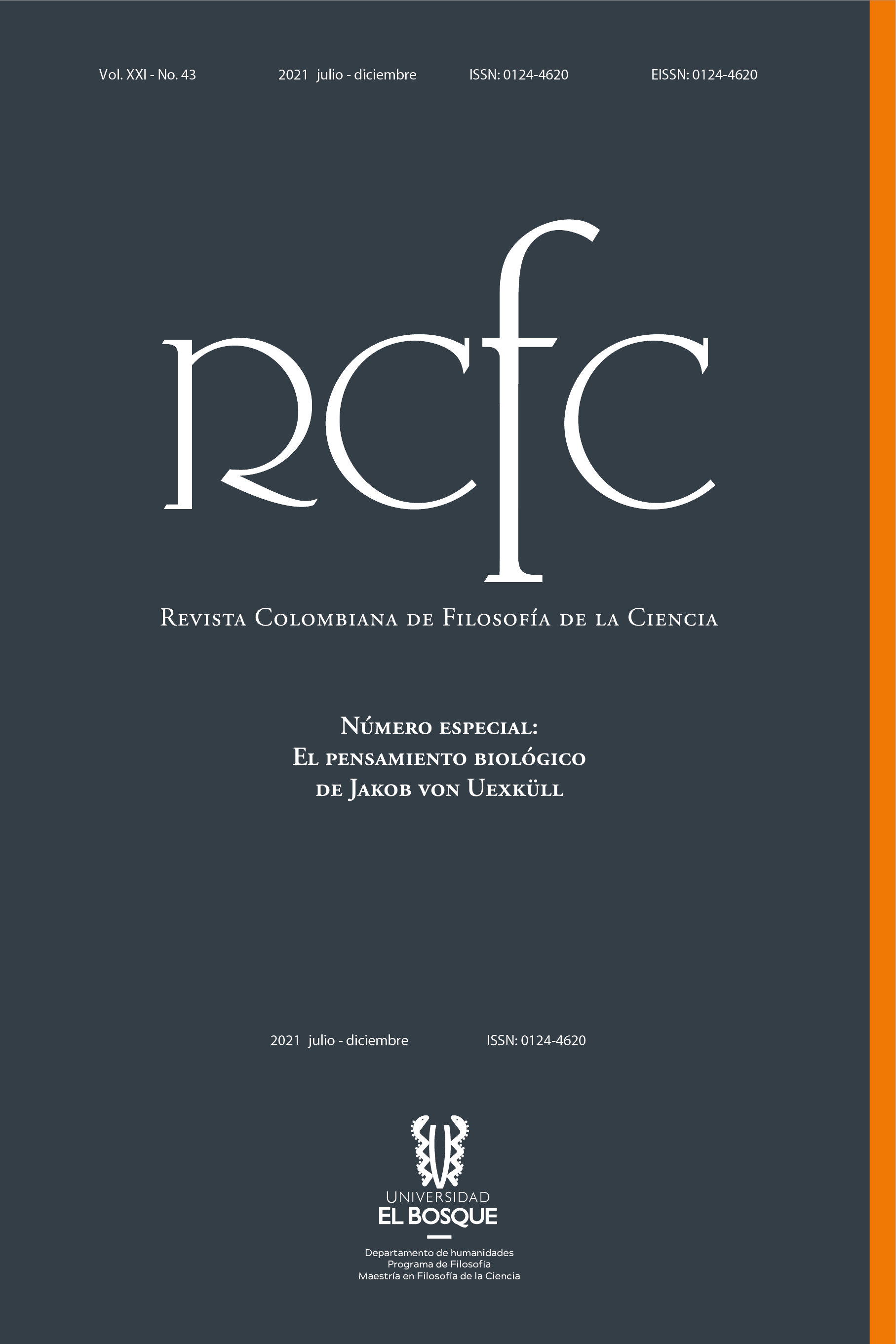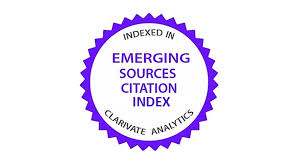Ethology and Hunting
Trap Design and Behavior Automatization Through Jakob von Uexküll’s Theoretical Biology
DOI:
https://doi.org/10.18270/rcfc.v43i21.3460Keywords:
ethology, behavior, hunting, automatization, Jakob von UexküllAbstract
Starting from the theoretical biology of Jakob Von Uexküll, the article exposes how protoethology constitutes the condition of possibility of trap design and of all hunting practices; in what sense the liberation of behavior guarantee the fidelity of ethological research applied to consumer habits; that the concept of cybernetics exhibits a semiorganic logic that allows approaching certain digital objects as if they were agents rather than tools; and the idea of an ethology of the machine as an access to algorithms behavior.
Downloads
References
Despret, Vinciane. ¿Qué dirían los animales si les hiciéramos las preguntas correctas? Buenos Aires: Cactus, 2018.
Ellenberg, Jordan. “This Psychologist Might Outsmart the Math Brains Competing for the Netflix Prize”. Wired Online (2 de marzo de 2008). <https://www.wired.com/2008/02/mf-netflix/>
Finkelstein, David. “Sensations, Animals and Knowledge”. Expression and the Inner. Cambridge: Harvard University Press, 2008.
Fisher, Mark. Realismo capitalista. ¿No hay alternativa? Buenos Aires: Caja Negra, 2017.
Hallinan, Blake y Striphas, Ted. “Recommended for you: The Netflix Prize and the Production of Algorithmic Culture”. New Media & Society 18.1 (2016): 117–137. <https://journals.sagepub.com/doi/full/10.1177/1461444814538646>
Heidegger, Martin. Los conceptos fundamentales de la metafísica. Mundo, finitud y soledad. Madrid: Alianza Editorial, 2007.
Hui, Yui. “What is a Digital Object?” Metaphilosophy 43.4 (2012). Oxford: Blackwell.
_______. “Machine and Ecology”. Angelaki, 25.4 (2020): 54-66. <10.1080/0969725X.2020.1790835>
Husserl, Edmund. Meditaciones cartesianas. Madrid: Tecnos, 2009.
Kant, Immanuel. Crítica del discernimiento (o de la facultad de juzgar). Madrid: Alianza Editorial, 2012.
Leibniz, Gottfried. Wilhelm. “Monadología”. Obras filosóficas y científicas II. Granada: Comares, 2010.
Nagel, Thomas. “What Is It Like to Be a Bat?”. The Philosophical Review 83.4 (1974): 435-450. <http://www.jstor.org/stable/2183914>
Platón. Las leyes. Madrid: Centro de Estudios Constitucionales, 1983.
Rachlin, Howard. “What Müller's Law of Specific Nerve Energies Says about the Mind”. Behavior and Philosophy 33 (2005): 41-54. < <https://www.jstor.org/stable/27759507>
Rahwan, Iyad., et ál. “Machine Behaviour”. Nature 568.1 (2019): 477-486. <https://doi.org/10.1038/s41586-019-1138-y>
Reynolds, Simon. Retromania: Pop Culture's Addiction to its Own Past. London: Faber and Faber, 2012.
Rose, Lacey. “Netflix’s Ted Sarandos reveals his Phase 2 for Hollywood”. The Hollywood Reporter (2013): Online. <http://www.hollywoodreporter.com/news/netflixs-ted-sarandos-reveals-his-526323>
Sadin, Éric. “La inteligencia Artificial: el superyo del siglo XXI”. La silicolonización del mundo. Buenos Aires: Caja Negra, 2016.
Srnicek, Nick. Platform Capitalism. Polity Book, 2017. <https://politybooks.com/bookdetail/?isbn=9781509504862>
Singleton, Benedict. “Maximun Jailbreak”. Aceleracionismo: Estrategias para una transición hacia el postcapitalismo. Buenos Aires: Caja Negra, 2017.
Simondon, Gilbert. El modo de existencia de los objetos técnicos. Buenos Aires: Prometeo Libros, 2013.
Takács, Gábor., Pilászy, Isván., Németh, Bottyán., y Tikk, Dononkos. “Matrix Factorization and Neighbor Based Algorithms for the Netflix Prize Problem”. ACM Digital Library (2008): 267-274. <https://doi.org/10.1145/1454008.1454049>
Thompson, Clive. “If You Liked this, You’re Sure to Love That”. The New York Times (21 de noviembre de 2008) Online. <http://www.nytimes.com/2008/11/23/magazine/23Netflix-t.html>
Uexküll, Jakob von. Theoretische Biologie. Berlin: J. Springer, 1928.
_______. Bedeutungslehre. Leipzig: A. J. Barth, 1940.
_______. Cartas biológicas a una dama. Buenos Aires, Argentina: Cactus, 2014.
_______. Andanzas por los mundos circundantes de los animales y los hombres. Buenos Aires, Argentina: Cactus editorial, 2016.
Wilson, Sara. “The Era of Antisocial Social Media”. Harvard Business Riview (5 de febrero de 2020) Online. <https://hbr.org/2020/02/the-era-of-antisocial-social-media>
Downloads
Published
How to Cite
Issue
Section
License

This work is licensed under a Creative Commons Attribution-NonCommercial-NoDerivatives 4.0 International License.

| Article metrics | |
|---|---|
| Abstract views | |
| Galley vies | |
| PDF Views | |
| HTML views | |
| Other views | |











